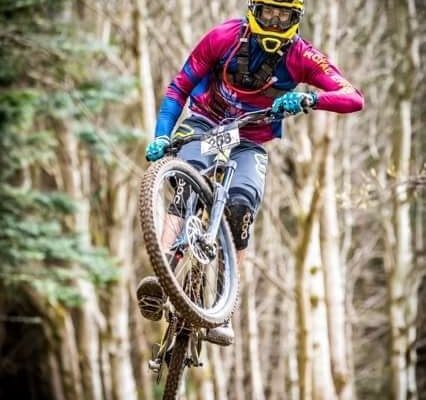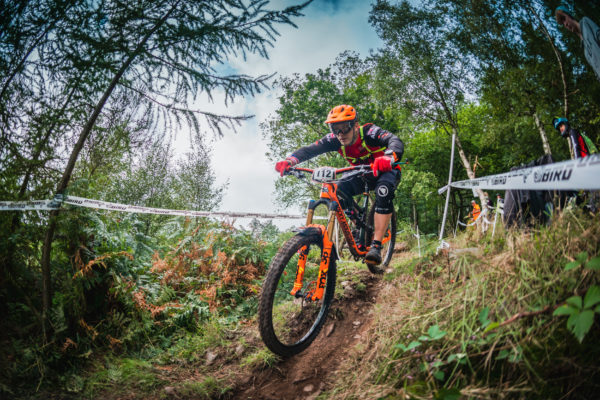Enduro is a type of mountain bike racing where the downhills are timed, and the uphills are mandatory but not timed. Riders are timed in stages that are primarily downhill, with neutral “transfer” stages in between. The transfer stages usually must be completed within a time-limit, but are not part of the accumulated time. A typical one-day enduro consists of 3 to 5 timed stages which take place on technically demanding, generally descending terrain, and often with sections of singletrack. These stages are linked by predominantly ascending “transfer” stages. Although a rider’s performance on the physically demanding transfer stages does not affect his or her result, they often have a time-limit, or a latest allowed arrival-time for the start of the next stage. Enduro combines elements of all racing disciplines from the physical fitness necessary for cross-country racing, the mental stamina necessary for XC-style stage races and the bike-handling skills to navigate technical gravity-fed singletrack.
Unlike downhill racing, a dedicated bike is not required for enduro. The same set of wheels you pedal at your local trails will likely do the trick. However, the bikes must last the event – your wheels, forks and frame must last the entire duration of the event, so a robust bike is primary.




